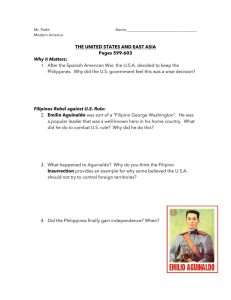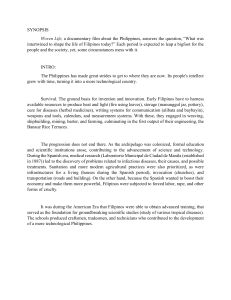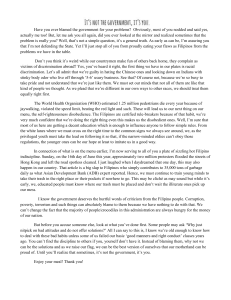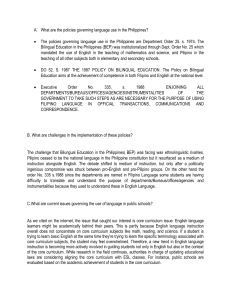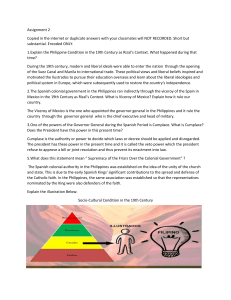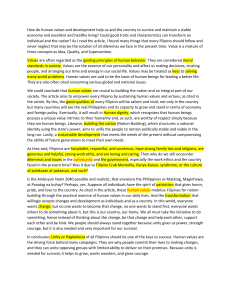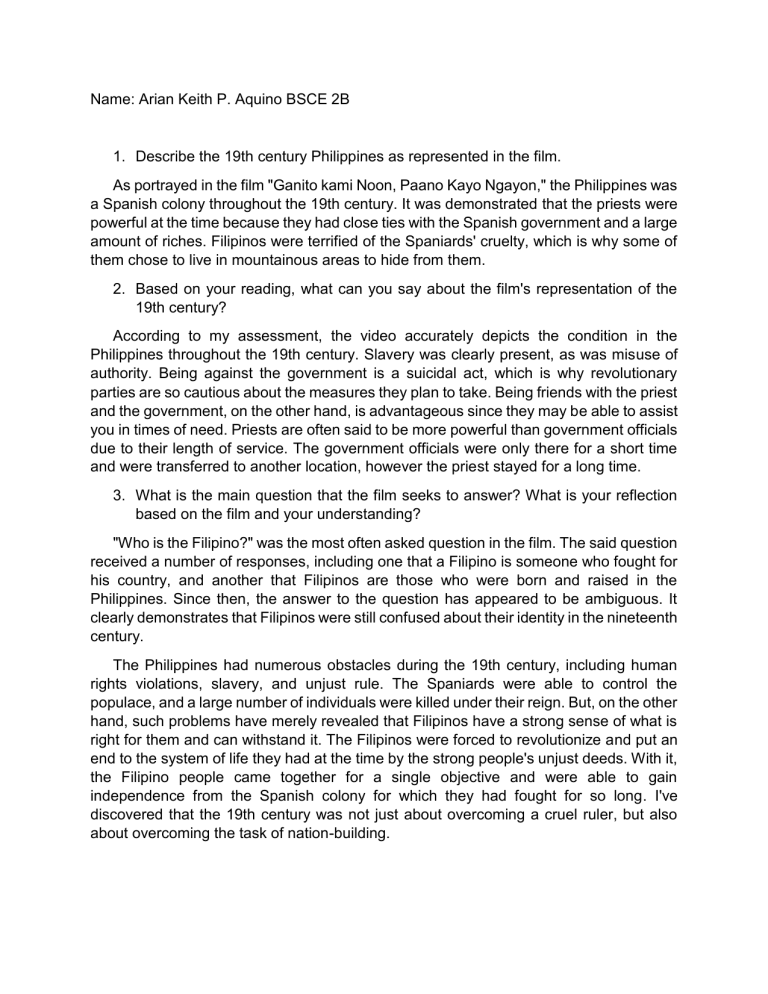
Name: Arian Keith P. Aquino BSCE 2B 1. Describe the 19th century Philippines as represented in the film. As portrayed in the film "Ganito kami Noon, Paano Kayo Ngayon," the Philippines was a Spanish colony throughout the 19th century. It was demonstrated that the priests were powerful at the time because they had close ties with the Spanish government and a large amount of riches. Filipinos were terrified of the Spaniards' cruelty, which is why some of them chose to live in mountainous areas to hide from them. 2. Based on your reading, what can you say about the film's representation of the 19th century? According to my assessment, the video accurately depicts the condition in the Philippines throughout the 19th century. Slavery was clearly present, as was misuse of authority. Being against the government is a suicidal act, which is why revolutionary parties are so cautious about the measures they plan to take. Being friends with the priest and the government, on the other hand, is advantageous since they may be able to assist you in times of need. Priests are often said to be more powerful than government officials due to their length of service. The government officials were only there for a short time and were transferred to another location, however the priest stayed for a long time. 3. What is the main question that the film seeks to answer? What is your reflection based on the film and your understanding? "Who is the Filipino?" was the most often asked question in the film. The said question received a number of responses, including one that a Filipino is someone who fought for his country, and another that Filipinos are those who were born and raised in the Philippines. Since then, the answer to the question has appeared to be ambiguous. It clearly demonstrates that Filipinos were still confused about their identity in the nineteenth century. The Philippines had numerous obstacles during the 19th century, including human rights violations, slavery, and unjust rule. The Spaniards were able to control the populace, and a large number of individuals were killed under their reign. But, on the other hand, such problems have merely revealed that Filipinos have a strong sense of what is right for them and can withstand it. The Filipinos were forced to revolutionize and put an end to the system of life they had at the time by the strong people's unjust deeds. With it, the Filipino people came together for a single objective and were able to gain independence from the Spanish colony for which they had fought for so long. I've discovered that the 19th century was not just about overcoming a cruel ruler, but also about overcoming the task of nation-building.
